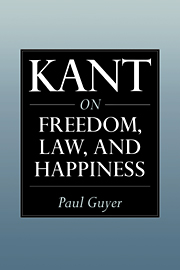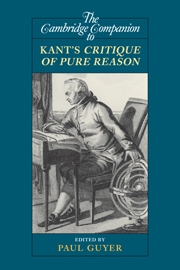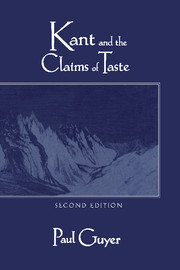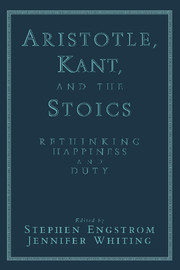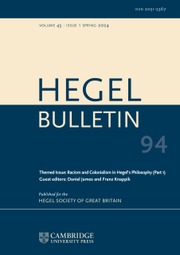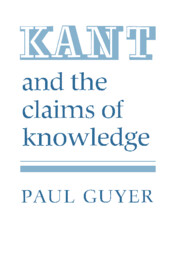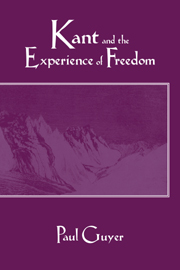Kant on Freedom, Law, and Happiness
Kant is often portrayed as the author of a rigid system of ethics that suits perfectly rational beings but not human beings. The twelve essays in this collection by one of the world's preeminent Kant scholars argue for a radically different account of Kant's ethics. They explore an interpretation of the moral philosophy according to which freedom is the fundamental end of human action, but an end that can only be preserved and promoted by adherence to moral law. Paul Guyer radically revises the traditional interpretation of Kant's moral and political philosophy and shows how Kant's coherent liberalism can guide us in current debates.
- Guyer on Kant is a successful formula that has always worked well in the past
- In addition to books mentioned above Cambridge reissued Kant and the Claims of Taste. Guyer is also editor of highly successful Cambridge Companion to Kant
- This collection radically revises traditional conceptions of Kant's moral and political philosophy
Reviews & endorsements
"I^Kant on Freedom, Law, and Happiness is a well-researched and well-argued contribution to Kantian studies.I^Kant on Freedom, Law, and Happiness is an important book in Kantian studies that advances a unifying vision of Kant's practical philosophy. The change of view that Guyer advocates is welcome and reveals a side of Kant that has perhaps been veiled for too long. Although the book will undoubtedly be of interest to anyone studying Kant's practical philosophy in a scholarly manner, it may also be of interest to the general reader of philosophy who is prepared to approach the book with the patience and tenacity that Guyer's extended arguments often demand. In either case readers will be rewarded for their efforts with a deeper understanding of both Kant and of central philosophical issues related to freedom, happiness and morality." --Metapsychology Online Review
Product details
February 2000Paperback
9780521654210
456 pages
230 × 153 × 27 mm
0.625kg
Available
Table of Contents
- Introduction
- Acknowledgments
- Note on translations and citations
- Part I. Origins:
- 1. Mendelssohn and Kant: one source of the critical philosophy
- 2. The unity of reason: pure reason as practical reason in Kant's early conception of the transcendental dialectic
- 3. Freedom as the 'inner value of the world'
- Part II. Principles:
- 4. Kant's Morality of Law and Morality of Freedom
- 5. The possibility of the Categorical imperative
- 6. The strategy of the Groundwork
- Part III. Duties:
- 7. Kantian foundations for Liberalism
- 8. Life, Liberty, and property: Rawls and Kant
- 9. Moral worth, virtue and merit
- Part IV. Hopes:
- 10. From a practical point of view: Kant's conception of a postulate of pure practical reason
- 11. Nature, freedom and happiness: the third proposition of Kant's 'Idea for a Universal History'
- 12. Nature, morality and the possibility of peace
- Index.

